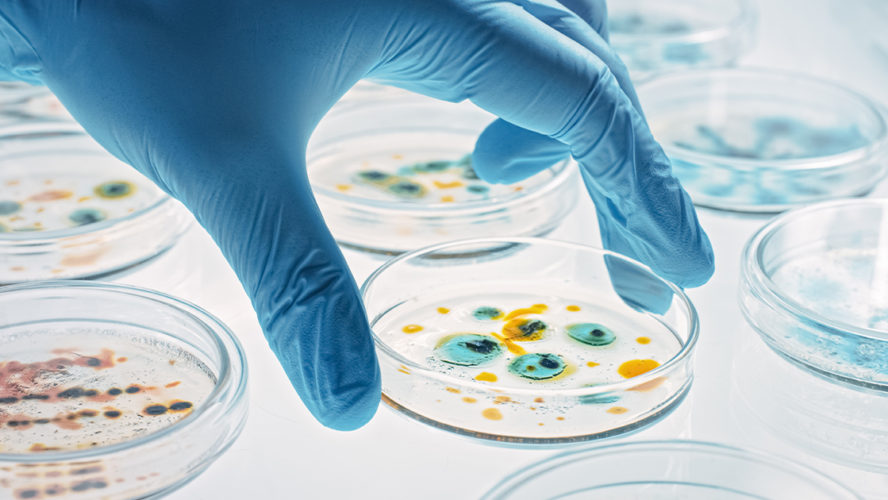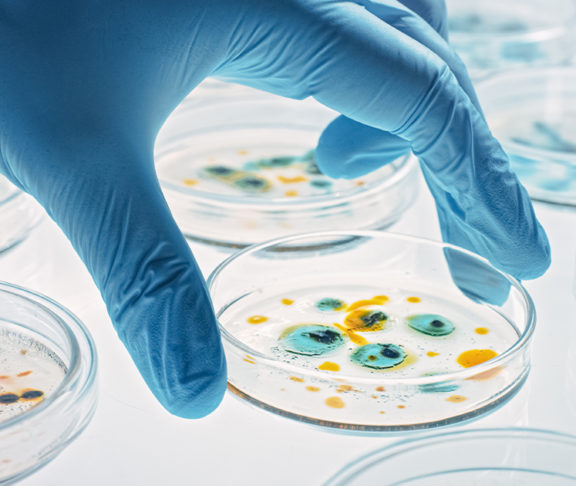Novel Gram-negative antimicrobial scaffold discovery is one of the surest ways to avoid resistance, but efforts to find them remain challenging.

Bruce Blough
Senior Research Chemist, RTI; Principal Investigator, CC4CARB
“The pharmaceutical industry has divested from antibiotic research, drastically reducing funds for early discovery.”
The pharmaceutical industry has divested from antibiotic research, drastically reducing funds for early discovery. Large screening efforts failed. A natural tendency to question novelty reduces enthusiasm for new ideas.
Consequently, obtaining and maintaining funds for discovery or to develop novel scaffolds is difficult. Emerging theories, such as the “eNTRy” model, suggest Gram-negative antimicrobial discovery efforts have been hampered by the lack of structural features enabling penetration. Features like primary amines, avoided in mammalian targeted drug discovery, facilitate penetration, and their absence may explain screening failures.
Seeding discovery
As a solution, the National Institute of Allergy and Infectious Diseases (NIAID) launched the Chemistry Center for Combating Antibiotic-Resistant Bacteria (CC4CARB). CC4CARB is an international collaboration aimed at seeding the discovery of antimicrobials by building a publicly available screening library of Gram-negative related chemical matter. Small, focused libraries based on community-solicited scaffolds are combined to form the screening library. Scaffolds can be in early discovery, hit-to-lead, lead optimization, or can be AI-generated. CC4CARB prefers traditional, small molecule discovery conducive for library synthesis, but can manage complex projects based on natural products, peptides, or organometallics. CC4CARB projects include broad spectrum and selective antimicrobial discovery. Submitters will receive enough of each compound to seed their research.
The research community is invited to submit scaffold ideas. Proposals are reviewed by the CC4CARB team, a scientific advisory board, and then NIAID. Library design is a collaborative effort between the scaffold submitter and CC4CARB chemists, and will incorporate modern approaches to Gram-negative antibiotic discovery. The program includes an 18-month disclosure embargo period to enable intellectual property development. Compounds may be tested for antimicrobial activity, depending on available funding. CC4CARB also accepts compound donations.
To learn more, visit cc4carb-collection.org or request a teleconference by emailing [email protected]




